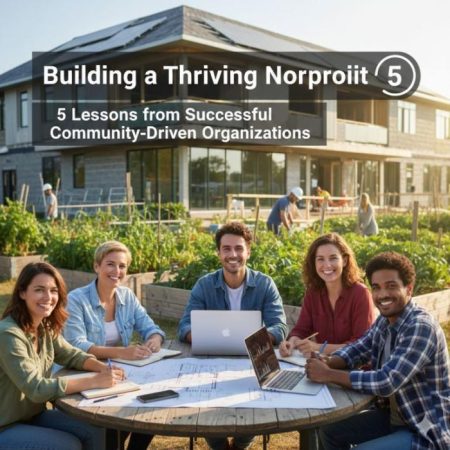Okay, picture this: you walk into a building that looks kind of boring and plain. The walls are all the same dull color, the lights buzz a little too loud, and everything just feels… tired. Now imagine going into that same space after a few simple updates. Nothing huge. But suddenly, it feels fresher, brighter, and way more inviting.
That’s what small fixes can do. They might not seem like a big deal at first, but they can totally change how a place feels. Especially in workplaces, where people spend hours every day, making a few smart changes can make things feel completely different—in a good way.
Let’s break down a few things that actually work.
The Floor Everyone Walks On (But Doesn’t Really Think About)
Floors take a beating. Shoes dragging, chairs rolling, coffee spilling—everything ends up on the floor. So it makes sense that changing the flooring is one of the fastest ways to make a workplace feel new again.
And here’s where carpet tiles come in. These are square pieces of carpet that fit together on the floor, kind of like puzzle pieces. They’re a smart pick because if one gets ruined—say, someone spills juice or drops something gross—it can be swapped out without having to replace the entire floor.
A lot of offices and commercial buildings are using carpet tiles now because they’re super practical and still look good. Plus, they help with noise, which is a big deal if people are trying to concentrate or take phone calls. It’s one of those changes that doesn’t scream, “Look at me!” but makes the space way more comfortable.
Lighting That Doesn’t Make Everyone Feel Tired
Lighting is a bigger deal than most people realize. Old or dim lights can make a room feel gloomy or make people sleepy. Too bright and it’s uncomfortable, like being in a hospital.
Swapping out old lights for LEDs or adding softer light in different parts of the office can change everything. It’s easier on the eyes and just makes the whole place feel calmer and more awake. And it’s not expensive, either. Just updating a few light fixtures or bulbs can really improve how a space looks and feels.
Fresh Paint That Doesn’t Break the Bank
Walls get scuffed, scratched, and sometimes even stained. Over time, that adds up and makes the whole place look older than it really is.
A fresh coat of paint, even if it’s just on one or two walls, can totally change the mood of a room. Bright colors can make things feel more alive, while softer colors can make it more relaxing. Some places even paint one wall a bold color and leave the rest neutral—that way it pops without being too much.
Paint is one of the cheapest updates you can do, and it makes a big difference right away.
Plants That Don’t Need a Green Thumb
Plants are kind of magical. Even just a few small ones can make a room feel more alive and welcoming. They add color, help clean the air, and make people feel more chill. Offices with plants often feel less stuffy and more fun to be in.
Not everyone’s great at keeping plants alive, and that’s okay. There are lots of options that don’t need much water or sunlight. Snake plants, peace lilies, and even fake plants can make a space look better without being a hassle.
And here’s the cool part: studies have shown that having plants around can actually help people concentrate better. So it’s not just about looks—it can really help with how people work.
Better Layout = Better Vibes
Sometimes, the layout of a room is the problem. Desks might be crammed together, or there’s too much empty space that no one uses. Fixing the layout doesn’t have to mean buying all new furniture. It might just mean moving things around a bit.
Putting comfy chairs in a corner can turn it into a chill-out space. Moving desks so there’s more light or less noise can help people focus. Adding rugs or those carpet tiles mentioned earlier can separate different zones without needing walls.
Basically, thinking about how people use the space—and making small changes to fit that—can make it feel totally new, even if nothing fancy was added.
Smarter Storage That Doesn’t Look Messy
Messy shelves and piles of papers make everything feel more crowded. But when there’s a place for everything, the room just feels easier to be in.
Adding cabinets, cubbies, or even baskets can help keep things tidy without needing more space. If everything has a spot, it’s less stressful for the people working there. And organized spaces usually look bigger too.
Sometimes, just hiding the mess can make it feel like the room got a total makeover.
Little Things That Add Up
There are also a bunch of smaller changes that, when added together, can really upgrade a space. Things like:
- New door handles or drawer knobs
- Framed posters or art on the walls
- Cool-looking clocks that actually work
- Floor mats at the entrance to catch dirt
- Scent diffusers to make the room smell fresh
None of these cost much, and none take a ton of time. But together, they make everything feel more polished and cared for.
Why It Actually Matters
It might seem silly to care about these kinds of things. But here’s the deal: when a space looks and feels better, people actually act differently in it. They’re more relaxed, more focused, and sometimes even happier.
If the walls are clean, the floor looks nice, and the lights don’t hurt your eyes, it feels more like a space people want to be in. And that’s important—especially in workplaces where people spend most of their day. You don’t need a full renovation to make that happen. Just a few smart updates.
Quick Recap: What Makes a Difference
Here’s the main idea—small changes really can make a big impact. You don’t need to knock down walls or spend a fortune. Just fixing the lighting, repainting a wall, switching to easy-to-replace flooring like carpet tiles, or adding a few plants can totally change how a workplace feels.
These fixes don’t just make the space look better—they make people feel better too. And that’s what really counts. So whether it’s an office, a school, or even just a little workspace, it doesn’t take much to give it a fresh start. Just a few smart updates, and suddenly it feels brand new.






